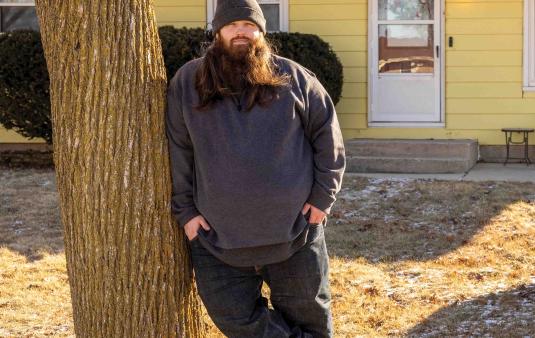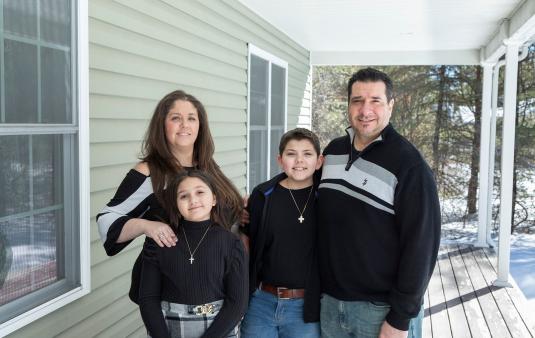Housing counseling is important as homeowners can understand the foreclosure process in their region. Homeowners also get to know their fair housing rights and obligations and alternatives to foreclosures such as loan modification, refinancing, and repayment plans. Having a HUD Certified Housing Counselor equips homeowners with the tools to achieve their goals and make informed decisions on their housing.
Note: These links are being provided as a convenience and for informational purposes only; they do not constitute an endorsement.
Apprisen
700 Taylor Rd. Suite 190, Gahanna, Ohio 43230
(800) 355 2227
Asian Services in Action
370 East Market St. Akron, OH 44304
(330) 535 3263
Benjamin Rose
11890 Fairhill Road, Cleveland, OH 44120
(216) 791 8000
Breaking Chains Inc.
23330 Chagrin Blvd.Suite #201, Beachwood, Ohio 44122
(216) 464 0699
Catholic Charities Diocese of Youngstown
4200 Park Ave. 3rd Floor, Ashtabula, OH 44004
(440) 992 2121
CHN Housing Partners
2999 Payne Ave., Suite 134, Cleveland, OH 44114
(216) 574 7100
Columbus Urban League's
788 Mount Vernon Avenue, Columbus, OH 43203
(614) 257 6300
Community Building Partnership
400 Market Ave N - Suite 400, Canton, OH 44702
(330) 458 0962
Community Housing Solutions
1967 W. 45th St., Cleveland, OH 44102
(216) 651 0077
12114 Larchmere Blvd., Cleveland, OH 44120
(216) 231 5815
East Akron Neighborhood Development Corp. (EANDC)
550 S. Arlington St, Akron, OH 44306
(330) 773 6838
El Centro de Servicios Sociales, Inc.
2800 Pearl Avenue, Lorain, OH 44055
(440) 277 8235
Fair Housing Contact Service
441 Wolf Ledges Parkway, Suite 200, Akron, Ohio 44311
(330) 376 6191
Fair Housing Resource Center, Inc.
1100 Mentor Avenue, Painesville, Ohio 44077
(440) 392 0147
Great Lakes Community Action Partnership
127 S. Front Street, Fremont, Ohio 43420
(800) 775 9767
GreenPath Financial Wellness
2465 Executive Park Blvd, Fairborn, Ohio 45324-6219
(855) 400 3717
Home Ownership Center
2820 Vernon Place, Cincinnati, OH 45219
(513) 916 2800
The Homeownership Center
130 West Second Street, Suite 1420, Dayton, OH 45402
(937) 853 1600
Homeport Ohio
3443 Agler Rd, Columbus, OH, 43219
(614) 221 8889
Home Repair Resource Center
2520 Noble Rd., Cleveland Heights, OH 44121
(216) 381 6100
Homes on the Hill
3659 Soldano Blvd., Columbus OH 43228
(614) 275 4663
Horizon Housing Communities Development for OHIO
853 S Main Street MB#433, Englewood, OH 45233
(937) 259 8870
Lorain County Urban League
200 Middle Ave #200, Elyria, OH 44035
(440) 323 3364
Lorain Metropolitan Housing Authority
1600 Kansas Ave., Lorain, Ohio 44052
(440) 288 1600
Miami Valley Community Action Partnership
719 S. Main Street, Dayton, OH 45402
(937) 341-5000
1469 Sweitzer Street, Greenville, OH 45331
(937) 548-8143
469 Dayton Avenue, Xenia, OH 45385
(937) 376-7747
308 Eaton-Lewisburg Road, Eaton, OH 45320
(937) 456-2800
Mustard Seed Development Center
1557 Vernon Odom Blvd. 2nd Floor, Akron, OH 44320
(330) 631 0350
Neighborhood Housing Partnership of Greater Springfield
527 E. Home Road, Springfield, OH 45503
(937) 322 4623
Neighborhood Housing Services of Hamilton
100 S. Martin Luther King Jr. Blvd, Hamilton, Ohio 45011
(513) 737 9301
Spanish American Committee
4407 Lorain Ave, Cleveland, OH 44113
(216) 961 2100
West Ohio Community Action Program Partnership
540 S. Central Ave., Lima, OH
38 E Auglaize St., Wapakoneta, OH
420 N. Brandon Ave., Celina, OH
(419) 227 2586
Working In Neighborhoods
1814 Dreman Avenue, Cincinnati, OH 45223
(513) 541 4109








